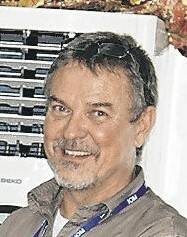
Davis
On Friday, Sept. 26, 1890, 32-year-old farmer James Drinnen and 42-year-old blacksmith and farmer Wilburn Fields set out from Kurtz for Ewing in a horse-drawn wagon.
The two friends had both migrated from the region of Hancock and Hawkins counties in Tennessee to Jackson County, Indiana, a few years earlier.
Upon arriving at Ewing on that warm September day, the two men likely had a few drinks at one or both of Ewing’s saloons. William Crabb ran a saloon on Grant Street, and Michael Mullen’s tavern sat on Broadway Street. The saloons were within a 2-minute walking distance of one another.
In Ewing, Drinnen and Fields met up with another acquaintance and Tennessee migrant, 54-year-old farmer George Matlock, who also was born and raised in War Gap. Drinnen, Fields and Matlock all lived near Kurtz but knew each other from Tennessee. The Matlocks and Fields had grown up together in War Gap, and Drinnen had married Rachel Martin-Matlock, George’s niece, before moving to Jackson County sometime in the mid-1880s.
The three eastern Tennessee natives left Ewing for Owen Township together. According to Drinnen, Matlock was “driving too fast and … was drunk.” Matlock dismounted his horse, “and I put him in the wagon,” Drinnen said. “I first rode the horse, and Fields got in his wagon.”
Apparently, Matlock didn’t like the fact that Drinnen was riding his horse. So “directly Fields and I changed (places),” Drinnen said, when they reached the Ewing covered bridge. By the time the three men reached Owen Township, a scuffle ensued.
Matlock reportedly tried to snatch the reigns away from Drinnen. “He jerked a large knife on me,” Drinnen said. “It was my own knife. I had loaned it to him.” The men spilled out of the wagon, and Matlock allegedly “cut at me and backed me up in a fence corner,” Drinnen said.
The blacksmith supported Drinnen’s story, saying Matlock “jumped out after Drinnen and cut at him. He drove Drinnen against a fence,” intending to kill him. Fields reported he knocked the weapon out of Matlock’s hand. Then Drinnen and Fields proceeded to beat Matlock. At some point, John Elkins, Jacob Weaver, Edward Allman and William Matlock — George’s younger brother and Drinnen’s father-in-law — arrived in time to witness the brawl.
Matlock was later arrested for intoxication and drawing a weapon. He pleaded guilty to the lesser charge of intoxication but demanded a jury trial on the weapon charge.
At the trial, Drinnen and Fields’ stories did not match testimonies of the defendant and four other witnesses. These witnesses insisted Matlock did not have the knife on that day. Ultimately, the jury found Matlock not guilty.
For their roles in the brawl, the prosecution charged James Drinnen and Wilburn Fields with assault and battery. Drinnen pleaded guilty and paid a fine of $5, but Fields fought the intoxication, assault and battery charges. When the court found Fields guilty on both counts, James A. Browning posted Fields’ bail.
Browning’s action may have hinged on his hatred for Matlock, his ex-brother-in-law. In 1878, George married Browning’s sister, Sarah E. Browning. After seven years and giving birth to two children — Walter and Rachael Ann — Sarah declared Matlock abandoned her and the kids. This separation coincided with the burgeoning romance between George and his niece, Drusilla Matlock, who was 26 years his junior.
Shortly after 24-year-old Drusilla give birth to her and George’s first child, David “Dinky,” in December 1886, Sarah sued for divorce. She claimed George was a “habitual drunkard” and “failed and refused to make reasonable provisions for his family.”
The fact that Matlock was cleared of the weapon charge while Drinnen and Fields were found guilty of assault and battery could not have sat well with Drinnen, Fields or Browning. In fact, this was just the first in a series of events that would spill over into a white-hooded vigilante attack in October 1891, where these three men would exact their revenge.
Craig Davis, who was born in Seymour and graduated from Brownstown Central High School, currently lives in Tegucigalpa, Honduras, and works for a U.S. government contractor on school-based violence prevention. He is the author of “The Middle East for Dummies” and is conducting research for a genealogy and social history book in Kurtz and Freetown. You can visit the Living with Cancer weekly blog at marvingray.org and write him at [email protected].
